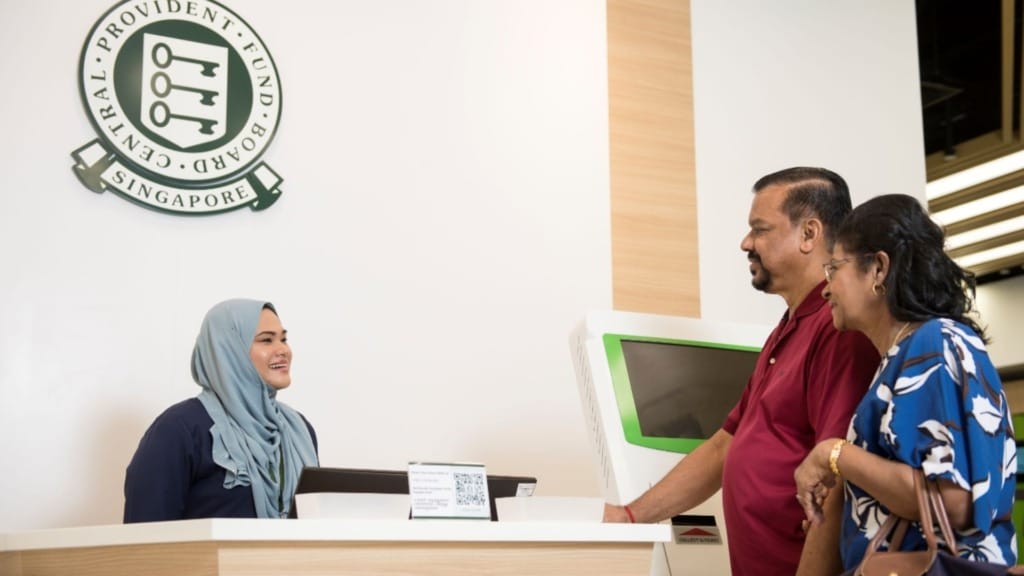Adobe: Driving Singapore’s digital transformation through Smart Nation 2.0
Adobe is driving Singapore’s Smart Nation 2.0 with AI, personalisation, and accessibility, enhancing citizen engagement and digital governance.

Singapore has long been at the forefront of digital transformation, pioneering the Smart Nation initiative since 2014 to enhance public services, improve quality of life, and strengthen economic competitiveness. Over the past decade, the government has built a robust digital infrastructure, introducing innovations such as Singpass, PayNow, and AI-driven healthcare solutions. These efforts have positioned Singapore as a global leader in smart governance, with a clear focus on seamless digital experiences for citizens and businesses.
Table Of Content
As Singapore enters the next phase—Smart Nation 2.0—the government is sharpening its focus on three key pillars: Trust, Growth, and Community. This evolution acknowledges that while much progress has been made, emerging challenges require new strategies. Cybersecurity, AI governance, and digital inclusivity have become top priorities, as Singapore seeks to balance rapid innovation with responsible and ethical technology adoption.
According to John Mackenney, Director, Digital Strategy Group APAC, Adobe, Smart Nation 2.0 presents a bold vision for a trusted, inclusive, and future-ready digital government. He notes, “While nearly all public services are now online and Singapore has done well in maintaining citizen satisfaction in customer experience, there remains room for improvement in digital equity and site performance. Achieving Singapore’s Smart Nation 2.0 will require continuous progress in accessibility, personalisation, and seamless digital experiences to meet ever-increasing citizen expectations.”

Adobe has been a key partner in this journey, providing innovative digital solutions to enhance citizen engagement, improve accessibility, and ensure that government services remain efficient, secure, and user-friendly. The 2025 Adobe Digital Government Index (DGI) offers valuable insights into Singapore’s progress under Smart Nation 2.0, highlighting areas of strength as well as opportunities for further improvement.
Key findings from Adobe’s 2025 Digital Government Index
Singapore continues to be a global leader in digital governance, but Adobe’s 2025 DGI highlights key areas for improvement. The report identifies customer experience, digital equity, and site performance as critical focus areas to enhance citizen engagement, accessibility, and service efficiency. While Singapore remains highly ranked, evolving citizen expectations and rapid technological advancements necessitate ongoing digital innovation.
Key highlights from the report:
- Singapore ranks second in APAC for customer experience, with a CX score of 70.4 out of 100, behind only New Zealand.
- Government platforms like Singpass and LifeSG have improved efficiency and accessibility.
- CX improvement has slowed to just 0.5% this year, highlighting the need for further modernisation.
- Digital equity improved by 11%, reaching 62.2, thanks to accessibility initiatives and inclusive service design.
- Readability remains a challenge, with many government websites scoring 48/100 on the Flesch-Kincaid readability scale, which indicates that content is fairly difficult to read. The optimal score for accessibility is 60.
- Site performance dropped by 8% to 53.8, affecting Singapore’s digital maturity goals.
- Inconsistent web experiences, slow-loading speeds, and outdated design elements hinder user engagement.
- Mobile loading speeds are 40% slower than desktop, impacting usability, particularly for mobile-first users.
Improving readability and site performance is essential for a seamless digital experience in government services. Many government websites have content that is difficult to understand. To enhance accessibility, agencies should adopt plain language, expand translation support, and integrate AI-driven tools like automated content simplification and voice-enabled interfaces.
Site performance is another challenge, with mobile loading speeds slower than desktop, affecting user experience. To address this, government platforms need mobile-first optimisation, faster load times, and streamlined architecture. Additionally, improving site authority, searchability, and SEO strategies will ensure citizens can easily find and access key public services in an AI-driven digital landscape.
Building trust in AI-powered government services

With AI adoption playing a crucial role in Smart Nation 2.0, building trust and transparency in AI-powered public services is essential. Citizens expect AI-driven government platforms to be fair, secure, and accountable, yet concerns over data privacy, misinformation, and algorithmic bias remain significant challenges.
To address this, Singapore has introduced several measures, including AI Verify, an open-source governance framework that ensures AI models used in public services adhere to ethical standards. Transparency is also being reinforced through initiatives like the Centre for Advanced Technologies in Online Safety (CATOS), which partnered with Adobe in 2024 to explore content provenance technologies. These solutions verify the authenticity of AI-generated government communications, ensuring they remain accurate and manipulation-free.
Adobe’s Content Authenticity Initiative (CAI) also plays a key role in ensuring that AI-generated content is verifiable and accountable. This is particularly crucial in mitigating misinformation risks, ensuring that AI-generated content in government communications is transparent, traceable, and tamper-proof.
Furthermore, AI governance must include strong citizen engagement strategies. Providing clear disclosures on AI-generated content, ensuring explainability in decision-making, and offering human oversight where necessary can help build public confidence. Singapore’s focus on digital literacy programmes must extend to AI awareness, ensuring citizens understand how AI influences public services and their interactions with government agencies.
Enhancing citizen engagement through personalisation and accessibility
As Singapore moves toward a citizen-centric digital government, personalisation and accessibility will be key to ensuring digital services remain relevant, efficient, and inclusive. Personalisation enables agencies to tailor services based on user preferences, making government interactions more seamless and proactive.
However, fragmented digital experiences across agencies remain a challenge. Many government websites operate in silos, requiring citizens to re-enter personal information multiple times. This lack of integration results in inefficiencies, delays in service delivery, and frustration for citizens navigating different platforms.

Adobe’s Experience Cloud solutions help integrate these platforms, enabling AI-driven predictive service delivery. By analysing past interactions, the system can anticipate citizen needs, automate form-filling, and recommend relevant services—transforming the user experience into a more intuitive, guided journey.
Accessibility is another critical area. While 73% of high-traffic government websites are accessible to persons with disabilities, gaps remain in assistive technology compatibility, mobile usability, and readability. Government agencies must focus on expanding AI-powered accessibility tools, such as voice-assisted navigation, real-time translation, and simplified user interfaces. Ensuring compliance with Web Content Accessibility Guidelines (WCAG) 2.1 AA will be essential to making government digital services truly inclusive.
Singapore’s ageing population also underscores the need for better digital inclusivity. Many seniors rely on voice navigation, larger text formats, and streamlined mobile interfaces to access services. Singapore can bridge the digital divide by prioritising mobile-first government service design and clear, easy-to-read content and making its Smart Nation vision accessible to all.
Adobe’s vision for Smart Nation 2.0
As Singapore advances its Smart Nation 2.0 agenda, AI, personalisation, and accessibility will shape the future of digital governance. Adobe envisions a citizen-first, AI-powered government that proactively delivers services, fosters trust, and ensures inclusivity.

A significant shift will be toward predictive service delivery, where AI automates citizen interactions by recommending benefits, healthcare services, or financial assistance before a citizen actively searches for them. This approach has already been implemented successfully at CPFB, where AI-driven tools personalise communications based on their understanding of CPF members and their unique financial needs, significantly improving engagement and user satisfaction.
Additionally, AI-driven multilingual and accessibility solutions will redefine how citizens interact with government services. Singapore’s multilingual landscape demands real-time translation services, voice-assisted navigation, and adaptive content delivery to ensure that all citizens—regardless of background—have equal access to information.
As AI becomes more deeply embedded in governance, trust and security must remain a top priority. Adobe is committed to responsible AI deployment, collaborating with CATOS, AI Verify, and the Content Authenticity Initiative to ensure transparency, prevent misinformation, and uphold ethical AI governance.
Looking ahead, Adobe will continue to be a long-term partner in Singapore’s Smart Nation strategy, helping the government create intelligent, connected, and citizen-first digital experiences. As John Mackenney affirms,
“At Adobe, we’re committed to enabling government agencies with the solutions they need to modernise digital experiences, efficiently deliver services, increase citizen engagement, and build trust through personalisation. Our Digital Government Index provides a roadmap to help agencies build an effective digital government of the future—one that is designed for everyone but tailored to the individual.”
Singapore’s journey toward Smart Nation 2.0 is an ambitious yet necessary step to ensure that technology serves all citizens equitably. With continued innovation, strong public-private collaboration, and responsible AI adoption, Singapore is well-positioned to set a global benchmark for digital governance in the years to come.
















